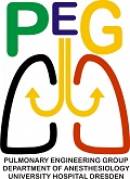User Tools
Sidebar
Background
In 2008 a new ventilation strategy termed variable Pressure Support ventilation (PSV) was introduced, which is able to increase the variability of the respiratory pattern independent from the inspiratory effort. In experimental lung injury, variable PSV was found to improve gas exchange and decrease the inspiratory effort, while reducing alveolar edema and inflammatory infiltration compared to conventional(non-variable) PSV. Importantly, variable PSV reduced peak airway pressure and respiratory system elastance in a variability dependent manner.In addition, preliminary observations suggest that variable PSV can reduce the work of breathing and improve patient comfort, but it is not known whether this new ventilatory strategy is able to speed the weaning from mechanical ventilation. Since variable PSV can reduce the mean pressure support, it may lead to a faster reduction of pressure support and, therefore, a shorter weaning period than conventional PSV.
The hypothesis of this study is that variable pressure support ventilation reduces the duration of mechanical ventilation to non-variable (conventional) pressure support ventilation.

